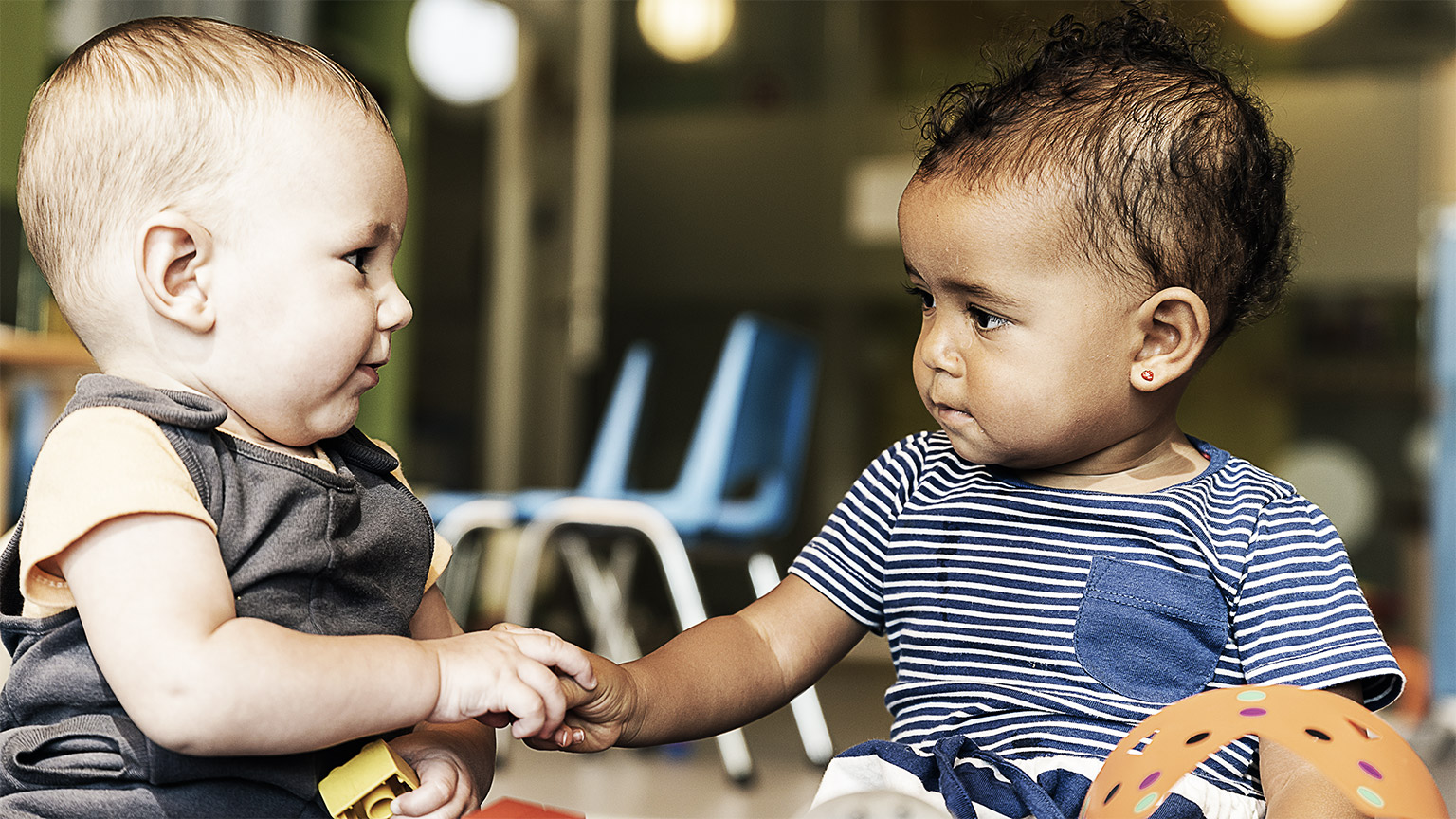What is social competence in the early years?
It is the ability for a child to:
- understand their environment
- gauge the wants and needs of others (in conjunction with their own)
- adapt to those situations in an age-appropriate way – a way that enhances their identity, and doesn’t stifle it.
An oversimplified definition of social competence would be: being able to get along with others.
Some of the other terms that fit under the umbrella of social competence:
These aspects of social competence indicate how well a child is developing psychologically — as it relates to interactions with others.
Children of various ages and stages (and even the same age and stage) will have different degrees of social competence. You can get a glimpse of a child’s social abilities by watching their behaviour with others.
Here are some of the telltale signs of a lack of social competence in young children. Each point below must be evaluated against your expectations of the age and stage. For example, you wouldn't expect a 12-month-old to wait their turn.
- Not being able to wait their turn.
- Not being able to share or assuming ownership of objects that are not theirs.
- Inability to compromise or problem-solve in typical play-based scenarios.
- Throwing temper tantrums when they don’t get their way or lose a game.
- Unwillingness to follow established rules of a game.
- Inability to include others in play.
- Lack of self-confidence when presented with an opportunity for social engagement.
- Inability to play independently of their parents or caregivers.
- Inability to stand up for themselves without being aggressive or overly reactive.
- Falling too easily to the will of others, even when they don’t want to.
- Inability to describe their feelings or control their expressions of strong emotions.
- A strong distrust of people (especially caregivers).
- Hitting, bullying, and verbally aggressive behaviour.
- Lack of empathy for children around them who are hurt, physically or emotionally.
However, remember that the early years are when children develop a lot of their personality, and psychological and physical abilities, which affect their interactions with others and may not represent anything but a passing concern as they build new social skills.
Children aren’t born to be socially confident. It takes learning to understand that some behaviours are acceptable, and some aren’t. And, also generally speaking, this type of learning starts in the home environment, with a lot of affection from parents and caregivers. When disabilities are involved, the daily reactions of parents can have a big effect on a child’s social development.
But even in an ideal home situation, a child still needs to practice skills like sharing, making eye contact, describing emotions, coping when they don’t get what they want, problem-solving with other children, and so on.
That is why we do certain activities in day-care and preschool settings; it is to help kids get along with others by learning these life skills. For example, we may teach games that encourage making eye contact. Or we may ask children to play games that involve partners and teams. And of course, there is ‘circle time’ where kids learn to sit quietly and listen to the teacher with everyone else in the room.
Activity – read, analyse and share
- Read Promoting Social and Emotional Competencies in Early childhood: Strategies for teachers (PDF).
- Download this template, and complete the empty cells with the information you learned from the reading.
- Create a journal post and upload your completed spreadsheet.
- In the post, include what this looks like at each age group:
- Infants
- Toddlers
- Young children
- Read and comment on other journals with your thoughts about what others took from the reading.
